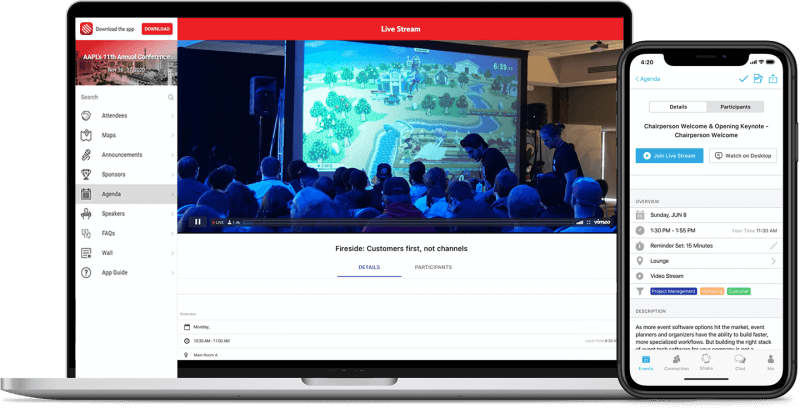Gender identity discrimination, fee transparency, and prompt communications were topics for recent discussion and change.
Private lenders’ unique position within the larger finance industry has allowed for greater nimbleness, flexibility, and a crucial level of self-agency in operations and strategy.
To maintain that advantageous—but not assured—differentiation among borrowers, investors, and industry partners, private lenders must demonstrate the ability to self-govern. The industry must exhibit that ability for two major reasons:
- To protect the reputations of individual businesses and the profession itself against both bad actors and unintentional (but de-facto) unethical practices.
- To serve as proof of internal checks and balances that prevent the need for additional regulation.
This protection mandate was the primary purpose behind the creation of the American Association of Private Lenders in 2009, although the first official Code of Ethics for the industry wasn’t formalized until 2014. Five years of thought, intentionality, and exhaustive discussion went into the original Code, drawing a delicate balance between completeness and limiting unnecessary burdens or impractical expectations.
All AAPL members must adhere to the Code’s standards of practice. Today, the association’s complaint process remains the industry’s only publicly accessible avenue to officially report potential violations. AAPL treats all reports with care, consideration, and seriousness, while also shielding members from those who seek to use the investigation process to harass or express dissatisfaction in otherwise ethical outcomes.
In the years since its original adoption, AAPL’s Code of Ethics has become a living document evolving alongside the industry. During each session of the Ethics Committee, committee members review the existing code and canvass the association’s constituency to find areas where additional clarity or attention is needed.
The 2021—2022 Ethics Committee identified these areas for discussion:
- Discrimination based on gender identity
- Fee transparency
- Prompt communication
What follows is an inside look at the thought process and extensive discussion surrounding each area, along with the committee’s final decision. The complete Code of Ethics may be found at aaplonline.com/ethics.
Discrimination Based on Gender Identity
In June 2020, the Supreme Court ruled in its Bostock opinion to prohibit employment discrimination based on sexual orientation or gender identity, with the CFPB publishing interpretive rule 4810-AM-P in March 2021 that “the prohibition against sex discrimination in the Equal Credit Opportunity Act (ECOA) and Regulation B … encompasses sexual orientation discrimination and gender identity discrimination, including discrimination based on actual or perceived nonconformity with sex-based or gender-based stereotypes and discrimination based on an applicant’s associations.” ECOA notably applies “in connection with an application for credit that is to be secured by a first lien on a dwelling”—ergo, no exemption for private lenders.
With those rulings, allegations of gender identity discrimination in employment or a borrower’s application for credit are firmly within the association’s purview to investigate under the existing standard that “Members will adhere to all laws with respect to the services in which they are engaged.”
However, some on the committee did have concerns this would still leave especially egregious and intentional gender identity or gender expression discrimination against individuals in a business setting as potentially outside the association’s domain, including the gaps where some private lender loans may still be exempt from ECOA considerations.
After much internal discussion, the committee has decided at this time to address complaint reports of discrimination based on gender identity or gender expression that do not fall under the standard: “Members will adhere to all laws with respect to the services in which they are engaged” under the existing “sexual orientation” anti-discrimination clause. The standard will remain as: “Members will not discriminate against any party based on their sex, age, race, nation of origin, sexual orientation, religion, or disability.”
Fee Transparency
The following new standard was suggested:
“Members shall take reasonable steps to promptly inform customers in writing of fees and costs associated with the transaction, including any changes therein.”
AAPL wishes to explicitly draw importance to the idea of fee transparency and practices that willfully keep clients in the dark until it is too late to find an alternative.
Although the committee unanimously agreed that a specific standard is necessary in this area, much caution was given to the approach and wording. Private lenders may need to change fees or costs as underwriting progresses and new facts are discovered about the borrower or property, and some fees are entirely out of the lender’s control as third-party costs.
For these honest and regular circumstances during loan operations, the committee has no wish to set stringent standards. The goal is to allow the association to specifically resolve issues with calculated bad actors and communication practices that, while not intentionally concealing, still result in removing the borrower’s agency to find other options.
The committee adopted the suggested standard in its totality, to take effect Jan. 1, 2023. In the interim, any complaint reports will be reviewed under the standard: “Members will be honest, forthright, and professional in all their business dealings.”
Prompt Communication
Finally, after a recent spate of Code of Ethics complaints from borrowers who were in the middle of origination when all communication from the lender suddenly halted, the association wants to draw attention to such practices as unacceptable. If private lenders do not wish to draw the eyes of regulators who will happily apply consumer mortgage communication standards and timelines to private, business-purpose loans, this practice cannot become routine.
The association recognizes that often in these cases the member has chosen to halt communication amid market turmoil impacting their ability to continue operations. That does not make the practice ethical; even amid business disruptions or uncertainties, members must still treat their clients with honesty, forthrightness, and professionalism by promptly communicating issues that directly affect them.
Although the Ethics Committee agreed that this developing pattern must be addressed, the committee struggled with how to package such expectations into a new standard without being prescriptive.
Ultimately, the committee decided to continue addressing allegations of communication misconduct under the existing standard: “Members will be honest, forthright, and professional in all their business dealings,” while drawing the issue to members’ attention here and in other future guidance.
Beyond the standards outlined in the Code, the association’s Ethics Committee regularly authors specific guidance to provide private lending professionals with a framework from which to create best practices and check their existing operations for possible ethical issues. Guidelines and thought leadership are published in this periodical and are available online at aaplonline.com/ethics.
AAPL is the oldest and largest national organization representing the private lending profession. The association supports the industry’s dedication to best practices by providing educational resources, instilling oversight processes, and fighting regulatory encroachment. Find more information at aaplonline.com.












Leave A Comment